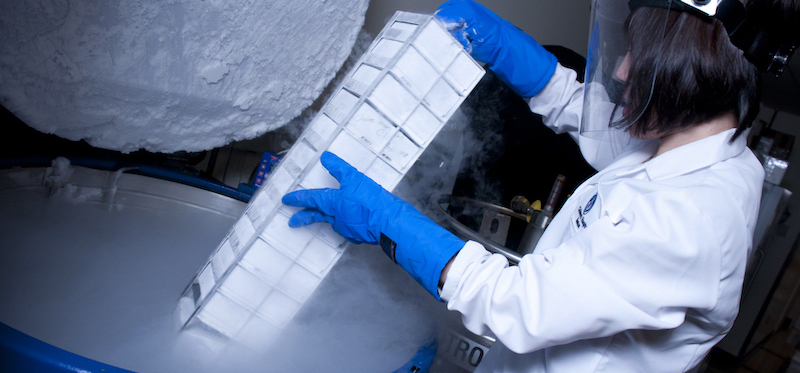Research & Innovation | Overview
Through work in the laboratory and clinical trials, our researchers are working to create safer and more effective methods to improve pediatric stem cell transplantation. We participate in the Blood and Marrow Transplant Clinical Trials Network and frequently collaborate with colleagues both nationally and internationally.

Our research focus
Solving the mystery of immune recognition and immune tolerance
Leslie Kean, MD, PhD, and Kean Lab researchers are working to solve the mystery of immune recognition and immune tolerance. Immune recognition is the process by which the immune system differentiates between healthy cells and both abnormal cells and external pathogens. This process is critical to effectively identify viruses, bacteria, and cancers, and effectively eradicate them. Immune tolerance is the process by which the immune system specifically turns itself off to avoid autoimmune diseases. Immune tolerance is also critical after solid organ or bone marrow transplantation, such that a patient can avoid rejection of an organ or hematopoietic stem cells, and such that the newly transplanted cells can survive in the patient and not cause graft-versus-host disease (GVHD), which is the deadliest complication associated with bone marrow transplantation.
Unraveling immune tolerance will lead to new techniques that overcome transplant rejection and prevent GVHD. It will enable us to use bone marrow transplants to treat HIV and other complex diseases. It will increase our understanding of how best to prevent and treat autoimmune diseases. And it will inform our attempts to augment the immune system to treat diseases such as chronic infections and malignancies.
Telomere disorders: 'Turning back the clock' to an embryonic-like state
Certain genetic disorders cause widespread disease in the body, but the principle reason for illness and death in early childhood is failure of the blood system. The Agarwal Lab, run by Suneet Agarwal, MD, studies these genetic blood disorders by “turning back the clock” — using new technology in stem cell biology to take skin cells from patients with genetic blood disorders and return them to an embryonic-like state, wherein they regain the ability to form any type of cell in the body. By studying this process of going back to an embryonic-like state, and then seeing how the cells develop into different tissues (blood cells, muscle, nerves, etc.), Agarwal believes it will lead to a better understanding of what is going wrong in cells carrying these disease-causing mutations. The hope is that the knowledge gained through this work will provide innovative therapies — using novel medications or perhaps even one’s own cells — for patients with genetic blood disorders, and will help develop similar strategies for patients with other rare disorders.
